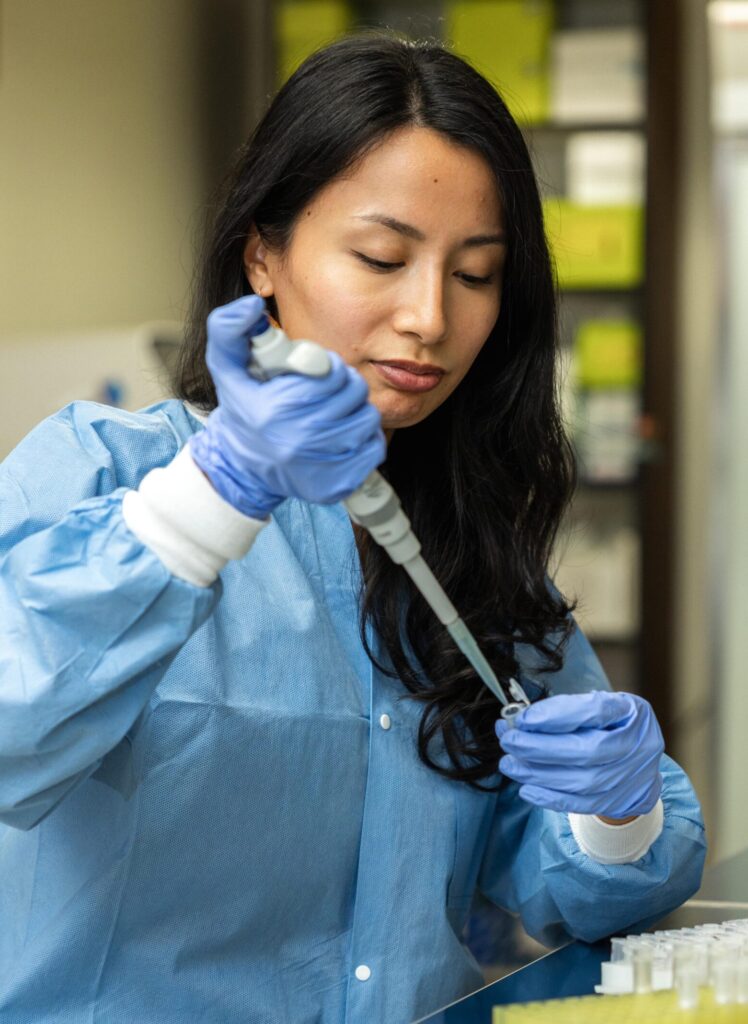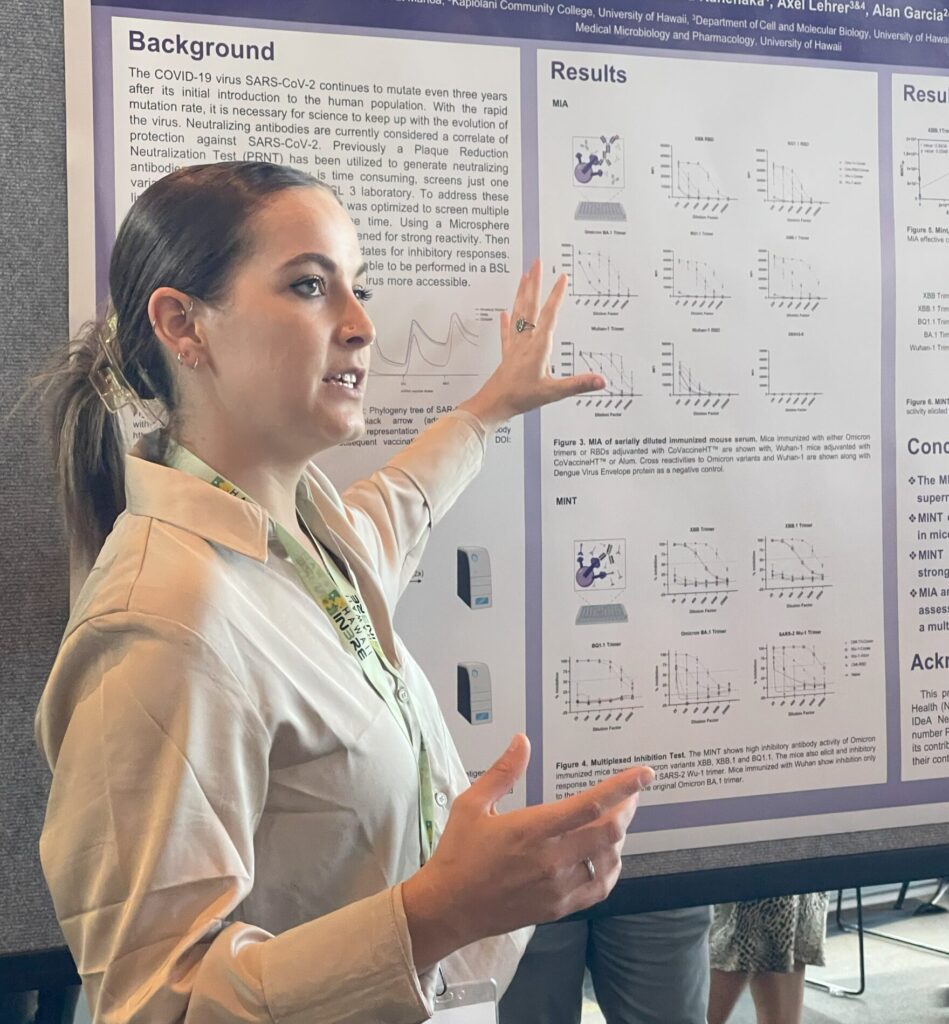A Hidden Gem for Antibody Research and Development
ANTIBODIES ARE AMAZINGLY VERSATILE PROTEINS that identify and eliminate microbial invaders, toxins and cancer cells. Monoclonal antibodies, or mAbs, are highly purified antibodies developed in laboratories using biotechnology. As universally critical reagents, mAbs have also played an instrumental role in developing immunotherapies that have curbed or prevented outbreaks and the severity of critical illnesses.
Since the COVID-19 pandemic, global awareness and understanding of the benefits and potential of antibodies have become commonplace, and the market for antibodies is exponentially growing.
Developing Successful Antibodies
Decades before the COVID-19 pandemic, Kapi‘olani Community College’s (KCC) Monoclonal Antibody Service Facility and Training Center (MASFTC) had been developing antibodies for research and educational purposes. MASFTC has worked with more than 20 researchers across the state and the country to develop hundreds of antibodies to support the development of potential immunotherapies for mesothelioma, cancer, Zika, COVID-19 and the Ebola virus.

“MASFTC is a unique facility in that most of the work such as animal immunizations, immunoassay development, hybridoma creation and cloning, and antibody validation, are performed locally and by the undergraduates
enrolled in the certificate and degree programs,” said Monika Ward, professor and chair of the Developmental and Reproductive Biology graduate program in the Institute for Biogenesis Research at the UH John A. Burns School of Medicine (JABSOM).
MASFTC has also provided antibodies to illuminate research related to wildlife diseases. In partnership with Thierry Work, wildlife disease specialist and project leader for the National Wildlife Health Center Honolulu Field Station, MASFTC developed mAbs that led to novel discoveries about Hawai‘i’s endangered green sea turtles. While studying Fibropapillomatosis (FP), a tumor-causing disease in green turtles, Work and his team discovered that due to their unique antibody structure, Hawai‘i’s green turtles have a very different immune response to FP than those in Florida.
Work and his team are now conducting further research to identify the code for green turtles’ novel antibodies in order to determine if FP has an autoimmune component, which would provide greater insight on how the disease affects turtle health.
“As a fundamental tool for biomedical research, we are incredibly fortunate to have a facility in Hawai‘i that operates as a partner and an engaged, constructive member of Hawai‘i’s scientific community,” said Work. “I would find it hard to see how we could do some of this specialized research here without them.”
New State-of-the-Art Technology
To enhance its research and services, MASFTC just received the state’s only Surface Plasmon Resonance (SPR) machine, a powerful optical-based, biosensor that will provide researchers with the ability to observe a wide range of molecular interactions in real-time. The cutting-edge instrument will enhance researchers’ ability to create new antibodies in the discovery and development of vaccines and therapies.
Expanding its Education & Training Opportunities
In 1994, KCC’s Microbiology Professor John Berestecky expanded the facility into a training center to provide undergraduate and graduate students opportunities to engage in higher level laboratory activities, through federal funding from the National Institutes of Health National Institute of General Medical Sciences IDeA Network for Biomedical Research Excellence (INBRE).

Since then, more than 70 students have graduated from the program into advanced degrees or careers with biotech companies, the Hawai‘i State Department of Health, clinical diagnostic labs and COVID-19 testing facilities.
“The work performed by the MASFTC has not only been a reliable, local resource for investigators to obtain high quality antibody
reagents important for their research, but has served as a highly successful nucleus of education and training opportunities for students interested in biomedical sciences,” said Hawai‘i INBRE Principal Investigator and Director Peter Hoffman, professor and vice chair of the Department of Cell and Molecular Biology at JABSOM. “HI-INBRE’s mission is to build research capacity throughout the state, and HI-INBRE’s support for the MASFTC as a core facility in our statewide network for the biomedical research community has fostered the growth and diversity of our workforce, while providing local monoclonal antibody services to aid research.”
More recently, MASFTC secured a National Science Foundation Advanced Technological Education grant that enabled it to bring on
Postdoctoral Researcher Brien Haun to develop and integrate an education program to advance antibody engineering through computational techniques.
“Our hope is to transform MASFTC into a UH core facility to be able to service any UH campus or department as well as other local companies and organizations that need antibody research and development,” said Berestecky. I’m hoping our efforts allow us to eventually run a research lab to support and develop our antibody therapeutics capacity and initiatives.”

